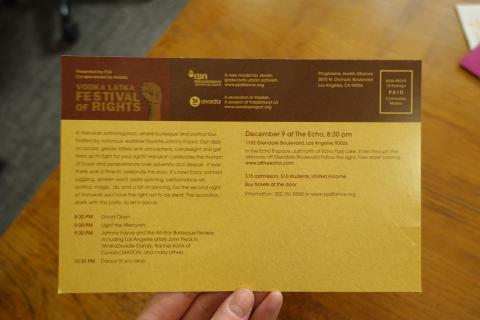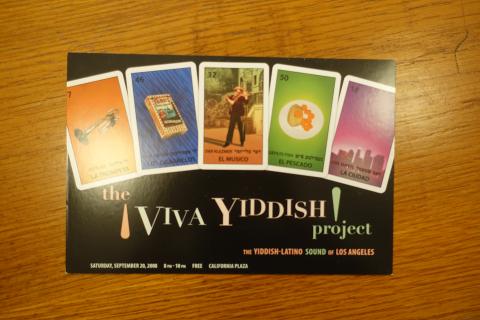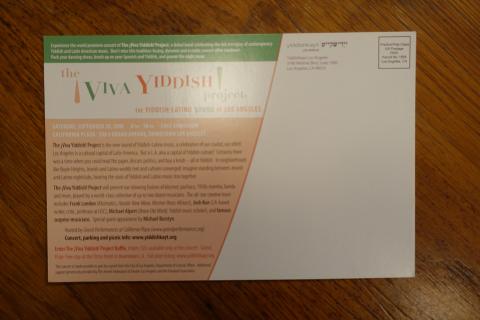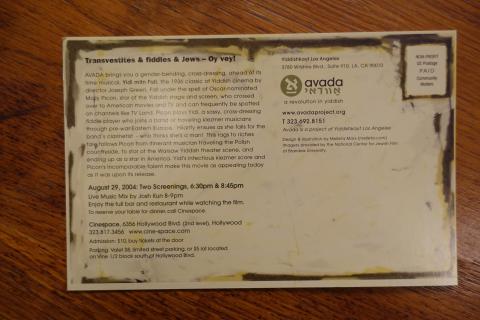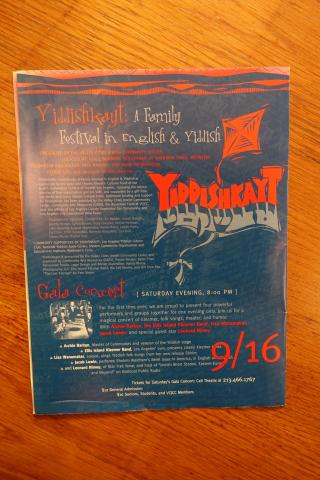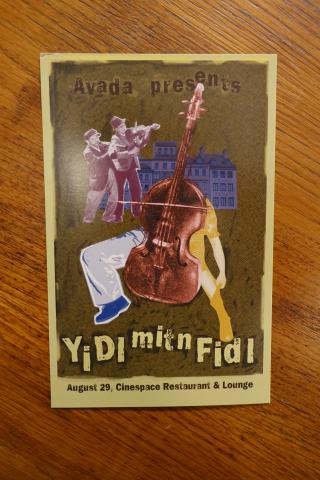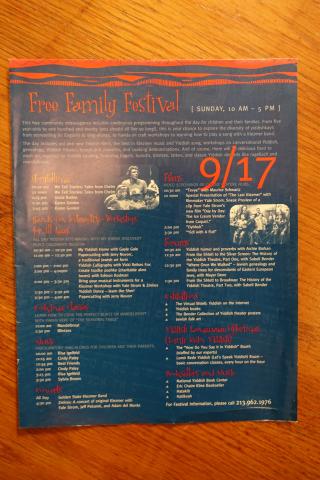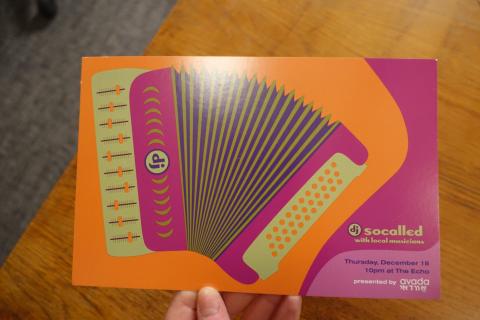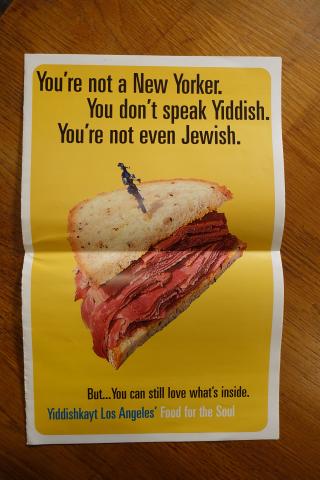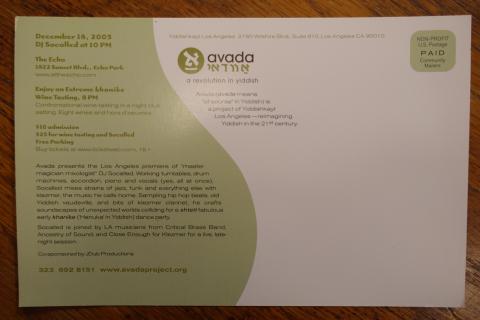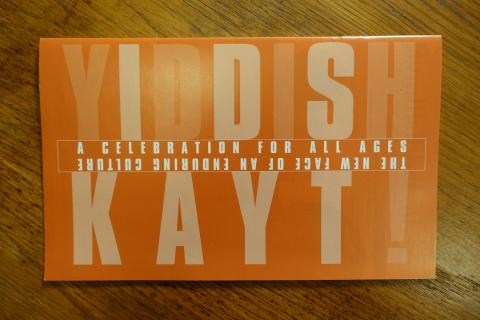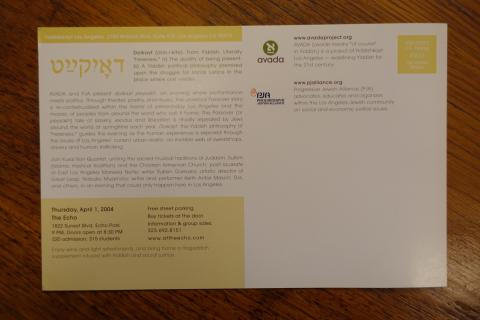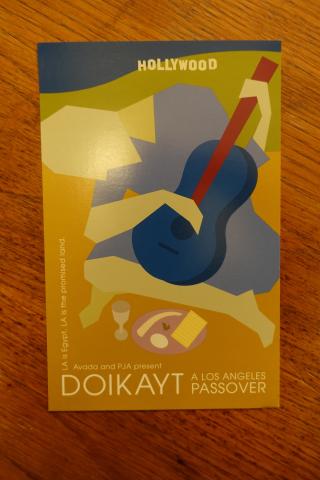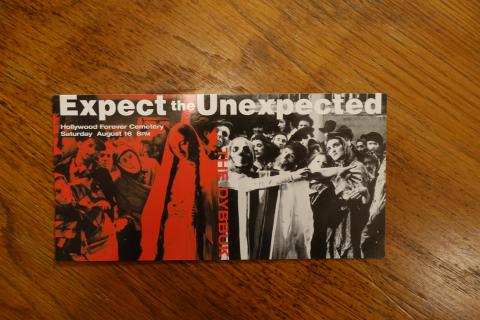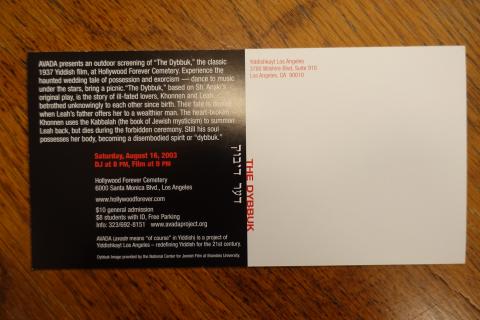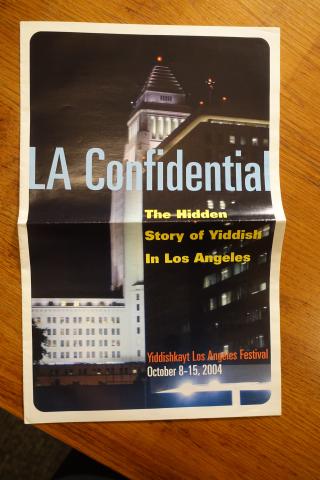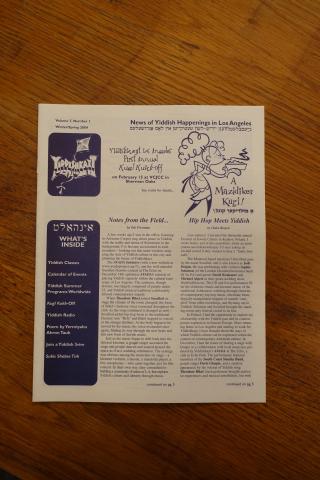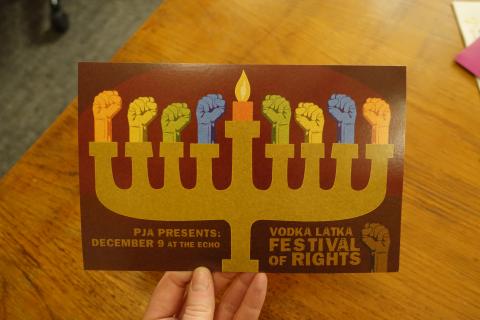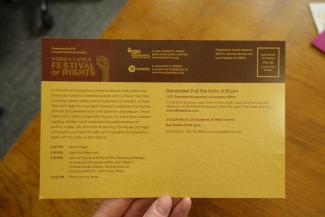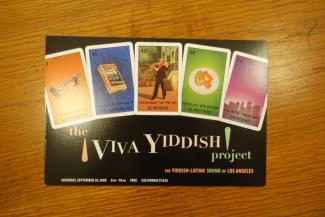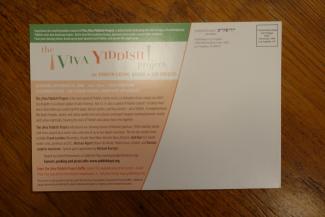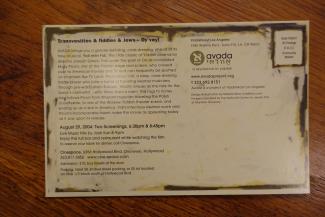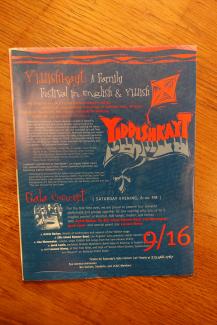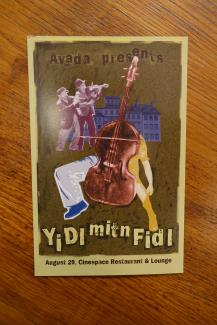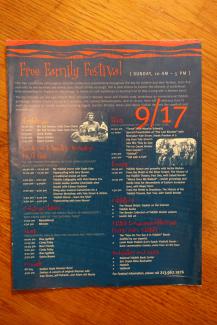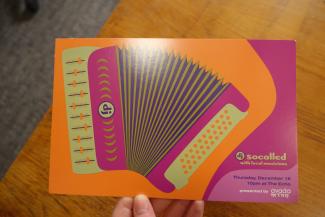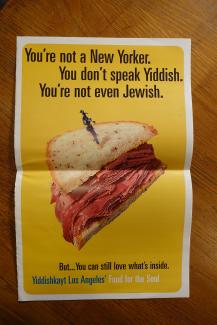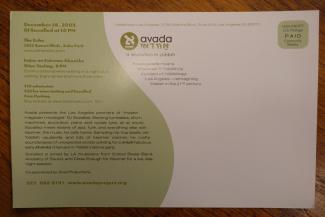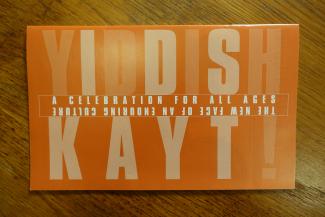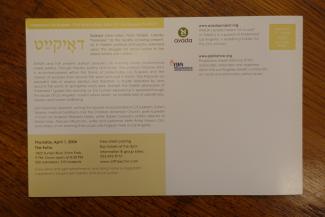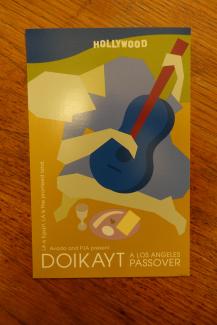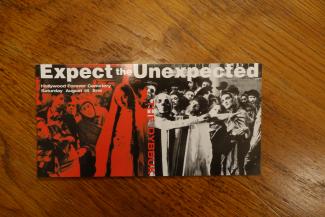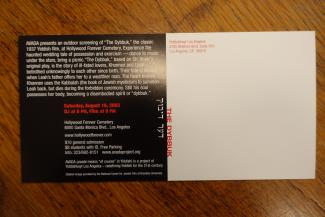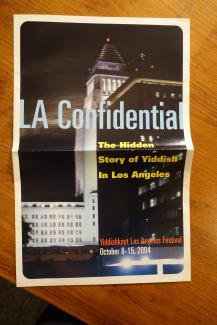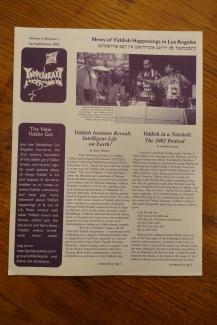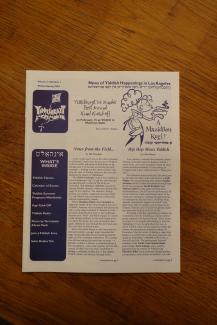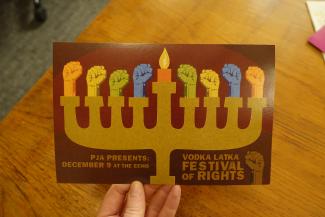The Yiddish Book Center's
Wexler Oral History Project
A growing collection of in-depth interviews with people of all ages and backgrounds, whose stories about the legacy and changing nature of Yiddish language and culture offer a rich and complex chronicle of Jewish identity.
Aaron Paley's Oral History
Aaron Paley, founder of Yiddishkayt L.A., was interviewed by Christa Whitney on February 7th, 2018, in Los Angeles, California. Aaron starts the interview in Yiddish, occasionally interspersed with Spanish or French, before switching to English. Aaron grew up in the San Fernando Valley. The Jewish Community Center and the folkshule (secular Yiddish school) based there were a very important part of his family's life. He describes the rich culture that he experienced through the Center, the shule, and the associated summer camps. He talks about being a member of a tiny minority group that was secular and Yiddishist among the already small minority that were Jews in Los Angeles. He tells a wonderful story about refusing to stand for the "Star Spangled Banner" but standing for the song about the Warsaw Ghetto Uprising. Aaron describes the Yiddish teachers of his childhood who taught him a love for the language, but he didn't really learn Yiddish until adulthood -- college at Berkeley, coursework in France and at YIVO, and a reading circle at the Center. Aaron began producing arts festivals in the early 1980s. He recalls how "uncontemporary" the suggestion seemed when some of the older Yiddishists began clamoring for Yiddish theater and festivals. Listening to arts activists from the Chicano and other minority communities, he realized that his own culture deserved respect as well. Aaron talks about the draw of assimilation and the shame associated with Yiddish among Jews – the language associated with death and destruction in the Old Country, the working class, and the radical movement. Much of Aaron's work involves fundraising, and he talks about the difficulty of raising money for Yiddish-related activities. He describes the 1994 origins of the Yiddishkayt Festival and the changes in perspective that led to it. Watching a site-specific piece about the massacre of thousands of Jews in a small town outside of Vilna made him realize the power of contemporary art to engage with the history of Eastern European Jews. Aaron's company, Community Arts Resources, had already produced many large festivals and were able to utilize their skills to make the first festival a big success. They grew year by year and were successful in integrating the festivals into the non-Jewish Los Angeles cultural scene with its many immigrant communities. For example, Aaron fondly recalls a "Viva Yiddish – L'Khayim Mariachi" concert that merged the two musical styles. Although they attracted big audiences and national press, the festivals always lost money and could not be sustained. With a new executive director, they have moved to a digital platform and are now reaching 50,000 people per month with features such as the popular "Yidlife Crisis" video series. They developed the Helix Project which takes young people, academics and artists to Eastern Europe to explore their roots. Even if the organization does not survive, Aaron feels proud that it has taught so many people about the story of Yiddish.
This interview was conducted in Yiddish and English.

